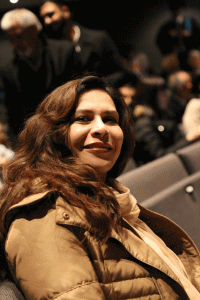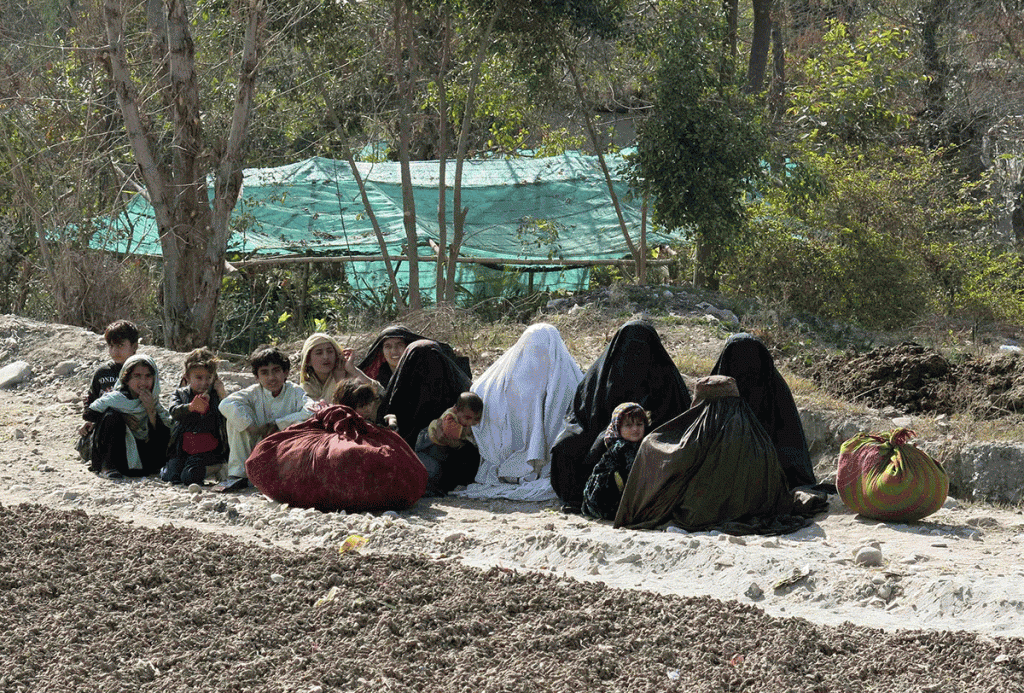Interview: Noreen Naseer, Scholar and Academic from FATA
By Ali Arqam | Newsbeat National | Published 9 years ago
Noreen Naseer is a scholar and academic from conflict-ridden FATA and is working as a faculty member in the Political Science Department of Peshawar University.
 In a recent paper, you have referred to the local accounts of the ‘missing’ women from Kurram. Similar cases have been recorded in other conflict zones of FATA and Malakand as well. Would you elaborate on it?
In a recent paper, you have referred to the local accounts of the ‘missing’ women from Kurram. Similar cases have been recorded in other conflict zones of FATA and Malakand as well. Would you elaborate on it?
Kidnapping, rape and trafficking of women are serious war crimes in any conflict-ridden area and many states have signed the UN Security Council Resolution 1325 on women, peace and security passed in 2000, which acknowledges the fact that women are the most affected in wars and conflicts. Unfortunately, Pakhtun women in conflict-ridden areas are not just victims of our cultural norms but also of state apathy. In Pakhtun society, a man’s honour is tied to women; hence, many victims of war crimes are forced to remain silent. The state is also in denial about women being impacted by conflicts and consequently refuses to sign the UN resolution. Coming from a tribal background myself, the tribeswomen trusted me, therefore I was able to record cases of rape, trafficking and missing women. Bound by tribal ethics, I did not disclose them to the media or showcase them at any other forum. I am still in contact with many displaced tribal women and try to assist them within my given capacity. Honestly speaking, I started out as a researcher and ended up as an activist. The incidents have had a profound effect on me.
Why doesn’t the mainstream media cover such tragic incidents?
FATA and most of the Pakhtun belt is a militarised and controlled space, and the media does not cover news of any incidents linked to women. In addition, Pakhtun men (reporters, activists, NGOs) do not want to talk about female victims, and even if somebody were to flag such issues in the media, they would be labelled, threatened or ridiculed. I’d say, both society and the state are responsible for neglecting female Pakhtun victims.
Military operations in FATA and the Malakand district seem to have displaced mostly women and children. Could this have been avoided?
I blame the state for the atrocities committed against Pakhtun women in conflict areas. Yes, the state could have avoided these operations altogether by taking certain measures such as policy shifts (not differentiating between ‘good’ and ‘bad’ Taliban but going after both), and through better intelligence. However, if military operations were inevitable, then the state should have been better prepared when conducting the operations and taken into account the plight of women and children who would inevitably be caught in the crossfire. Further, I believe that the state should have ensured the provision of ration and transport, plus proper shelters. Alternatively, volunteers under the state’s supervision, including civil society in both rural and urban areas, should have been allowed to assist people displaced by the operations.
There are families who have lost their male heads in the conflict, leaving the women to shoulder the burden. What sort of difficulties do these women heads face in feeding their families?
It’s heart-wrenching to see them standing in queues, clueless and helpless. Most of them cannot read or write, have no identity cards and no one to guide them. They come from different tribes and villages and the people there are unknown to them. In the cities they are in unfamiliar surroundings and the people are total strangers to them. And as they beg or ask for work, they are risking their lives. They face issues settling down in urban spaces, and struggle with the day-to-day expenses.
The women in the tribal territories have been victims of patriarchal customs. How was their situation further aggravated after militants took over these territories?
Ironically, Pakhtun norms coincide with the militants’ views on the movement of women outside their homes; on the pretext of protecting their honour, restrictions are placed on their getting education or employment. There are exceptions, but I am talking about the majority and how they perceive women as their property and want to control them. Militants reinforced these Pakhtun values in the name of religion when they took control of these areas. Women’s movement outside their homes, which was already considered dishonourable, was further circumscribed and raised to ‘sinful’ status. Girls schools were blown up (and later boys schools as well) to stop females from acquiring education. Initially, nobody bothered to highlight it (in 2007, my cousin’s daughter died when an all girls’ school van was targeted by militants). Somehow, Pakhtun men and militants, in these areas, are on the same page, in terms of disempowering women. The only difference is that militants are more brutal.
The notion of honour attached to women’s bodies, like in other parts of Pakistan, is prevalent in the tribal territories as well. How have anti-women practices been protected in the name of tribal code?
Local customs and the tribal code don’t have a single clause that provides breathing space to women. Dowry is legal, honour killings are not condemned, property is denied under the pretext of shamilaat (shared lands) and, above all, a woman is considered her husband’s honour (read private property.) Unfortunately these customs are romanticised by the educated classes too.
There are cases involving people of FATA living in Karachi, where girls who tried to elope were taken to their native towns to be killed, in order to avoid legal complication in the cities. Have you heard of such cases?
Yes, several cases were shared with me from Kurram, Mohmand, Khyber and other agencies. It is easy for them to take their daughters, sisters and, in some cases, even cousins, and shift them to their respective tribal areas and brutally murder them. It is easier to murder a woman or child in the tribal areas than it is in state-controlled areas. These unfortunate girls had no access to legal assistance in urban places such as Karachi and Islamabad (another place with a huge Pakhtun presence), nor did they have any idea about how to approach the court or crisis centres.
Laws under the Frontier Crimes Regulations (FCR) are also said to discriminate against women. What does the FCR say about the anti-women practices of swara (offering girls as brides to settle disputes), valvar (offering girls as brides in exchange of money) and ghag (forced marriages of girls)? Does the ongoing debate on FATA reforms address them?
FCR’s Chapter IV, article/clause 30 only mentions women. It says “any married woman, who knowingly and by her consent, has sexual intercourse with any man who is not her husband, is guilty of adultery, and shall be punished with imprisonment for a term which may be extended to five years or a fine or both.’’ In addition, to make it more implementable, the complaint has to come from her husband or any person who is in charge of her in her husband’s absence. The British made sure that the status of women remained the same, using excuses like Pakhtun honour. I believe this was added just to reinforce the notion that women are property or chattel. There is no mechanism in the FCR to defend or to protect women in case of charges of adultery or other practices like ghag, swara, valvar or badal are made against them. We do not see any specific reform or any protective clause/article in Nizam-e-Adl. However, this access to the High Court and the Supreme Court is a good omen. We observed how women in Malakand, in different cases, accessed courts, although the percentage is still very low.
How come there is no female representative on the reforms committee charged with deliberating on the future of the FATA region? What does this symbolise?
For the last 68 years, the Pakistani state has continued the old British policies and system in FATA; therefore, it is very difficult to change attitudes there. It symbolises an extension of the colonial mindset. Our ruling elite (read governor, civil servants, Maliks, mullahs and nouveau riche) and their supporters love the British system for FATA and the old status quo. The reforms committee should have better representation of different political parties, Pakistan’s civil society, FATA civil society, FATA youth and, above all, tribal men and women. People argue that in the rest of Pakistan, the Pakistan Penal Code (PPC), which is based on the old British justice, is still operational but they completely forget that FCR is only a criminal regulation to suppress any tribe in the buffer-to-buffer zone in Afghanistan. This is because the British wanted to control these strategic areas for trade and commerce and to control the Afghans.
Ali Arqam main domain is Karachi: Its politics, security and law and order



